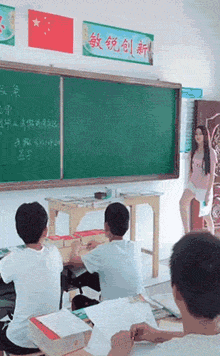
请家长朋友牢记:英语、法语、德语、意大利语、西班牙语和我们的汉语拼音使用的都是拉丁字母。
会读写汉语拼音的孩子,也就基本上不存在这些语言的写字问题。
只需要把主要精力放在读上面。
会读汉语拼音的孩子,只要家长朋友微微了解一些细节上的差异,就已经基本上会读拉丁语、意大利语、西班牙语单词。
稍加练习,也可以轻松掌握英语和法语发音。
【英语】unite[ˈjuːnait, juˈnait]vt.1. 使合成一体; 联合; 结[接]合2. 使混合; 使粘合3. 使结婚4. 兼备(各种性质)
unite bricks and stones with cement用水泥将砖和石块粘合在一起
unite two families by marriage两家联姻
vi.
1. 成为一体; 合一; 联合
2. 团结; 一致; 协力
3. 混合
Working men of all countries, unite! 全世界无产者, 联合起来!
Oil and water will not unite.油和水不相融。
England and Scotland united in 1706.英格兰和苏格兰在1706年合并。
请家长朋友大概了解词源:
From Middle English uniten, from Latin ūnītus, perfect passive participle of ūniō.
我们可以大概了解:英语单词unit(单元),unity(团结),uniform(制服),univere(宇宙),university(大学)中的un(i)-都源自拉丁语表“一”的单词unus。
【拉丁语】unus:unus, primus num. one;
拆解:un us。
词源:From Old Latin oinos, from Proto-Italic *oinos, from Proto-Indo-European *óynos (“one, single”).
Cognates include Ancient Greek οἶος (oîos), Sanskrit एक (éka), Old Church Slavonic ѥдинъ (jedinŭ), Old Irish óen, and Old English ān (English one and an).
现代英语的one和an都源自古英语的ān。和拉丁语的unus,古希腊语οἶος (oîos),梵语एक (éka),古教会斯拉夫语ѥдинъ (jedinŭ), Old 古爱尔兰语óen,最终都源自PIE(原始印欧语)*óynos (“one, single”),由*éy (“he, she, it”)和后缀*-nos构成。
在英语中,un-至少有2个,一个是表“一”,一个是否定前缀。
当表“一”时,元音字母u读其字母音[ju:],而表“否定”时,元音字母u读短音[ʌ]。
我相信,认识英语单词table的小朋友,再记忆able肯定不是难事。
【英语】table[ˈteibl]n.1. 桌子, 台子, 架2. 餐桌; [只用单]食物, 酒菜; 一桌人
拆解:tab le(名词后缀)。
词源:From Middle English table, tabel, tabil, tabul, from Old English tabele, tabul, tablu, tabule, tabula (“board”); also as tæfl, tæfel, an early Germanic borrowing of Latin tabula (“tablet, board, plank, chart”). The sense of “piece of furniture” is from Old French table, of same Latin origin; Old English used bēod or bord instead for this meaning: see board. Doublet of tabula.
请家长朋友记重点:英语单词table实际上是一个法语单词,源自拉丁语的tabula。
是古法语把拉丁语中的后缀-ula变化为-le。
【法语】table[tabl]表格;菜;吃饭时;公开;在座的人;桌;桌子;表;餐桌;工作台;铭文;高原;平地层
拆解:tab le。
【拉丁语】tabula(/ˈta.bu.la/):tabula, tabulae n. f. |plank/board, flat piece of wood; door panel; counting/playing/notice board;
拉丁语的ta对应汉语拼音的da,而bu接近汉语拼音的bu,只是,拉丁语的b是浊辅音,对应汉语拼音读轻声时的b。拉丁语的la和汉语拼音的la读音基本上是一样的。
不能使用谷歌翻译的家长朋友,可以利用百度翻译里的西班牙语发音,大概了解拉丁语发音。
在德语中也有一个Tabula。
【德语】Tabula [die] (古代)手写板。 Tabula rasa 一词的组成部分。
拆解:tab ula。
德语的ta和汉语拼音的ta读音基本上是一样的。而bu和拉丁语的bu读音是一样的。德语中的la和拉丁语、汉语拼音的la读音基本上是一样的。
西班牙语、意大利语的tabula和拉丁语的tabula发音基本上是一样的。
把table的t去掉,就是英语单词able。
【英语】able [ˈeibl]adj.1. 能, 会2. 有才能的; 具...的能力的; 能干的3. 显示出才能的4. 【律】有法定资格的5. 可以...的, 会...的6. 军用或电码中用来代替“A”
be able to (do sth.)能[会](做某事)
He is an able judge.
他是一个能干的法官。
She is old but still able.
她虽老但仍然很能干。
He made a very able speech.
他做了一篇精彩的演说。
【英语】unable [ˈʌnˈeibl]adj.1. 不能的, 不会的2. 无能力的; 不能胜任的; 无能为力的
be unable to see the difference看不出差异
拆解:un able。
英语表“宇宙”的单词universe实际上是在法语的相应单词univers后面加上不发音的e,避免以s结尾的单词被误认为复数。
【英语】universe[ˈjuːnivəːs]n.1. 宇宙; 万有; 天地万物2. 世界; 全人类3. 【天】恒星 与星辰系; 银河系4. 思想等的体系、范围等
Our world is but a small part of the universe.我们的世界只是宇宙的一小部分。
拆解:uni vers e。
【法语】univers[ynivɛr]n. m. 全球,全世界,世界,天下全世界的人,世人,天下人,宇宙,天地万物
拆解:uni vers。
词源:From Latin universum (“universe”), from adjective universus (“entire”), from uni- versus, past participle of vertere (“to turn”).
法语中简单粗暴地把拉丁语的universum结尾的-um去掉。
拉丁语的universum源自形容词universus,由uni-和versus构成。
拉丁语的versus实际上是动词vertere的过去分词。
强烈建议家长朋友大概熟悉一下拉丁语动词vertere。
【拉丁语】verto(古典式发音/ˈu̯er.toː/,教会式发音/ˈver.to/):verto, vertere, verti, versus v. turn, turn around; change, alter; overthrow, destroy;
拆解:vert o(表“第一人称单数”尾缀)。
词源:From Proto-Italic *wertō, from Proto-Indo-European *wértti.
Cognates include Sanskrit वर्तते (vártate, “to turn”), Sanskrit वर्तयति (vartáyati, “to turn”), Avestan (varət), Proto-Slavic *vьrtěti (Old Church Slavonic врьтѣти (vrĭtěti, “to turn around”), Polish wiercić (“to drill; to fidget”), Russian вертеть (vertetʹ, “to rotate”)), Proto-Baltic *wert- (Lithuanian ver̃sti), Persian گرد (gard, “grow; turn”), Proto-Germanic *werþaną (“to become”) (Old English weorþan (“to happen”), English worth), Old Irish dofortad (“to pour out”).
拉丁语词典通常列出动词的4种主要变化形式,而英语通常列出3种。
拉丁语的verto相当于英语的I turn,而拉丁语的vertere相当于英语的to turn。
拉丁语动词的过去分词通常由动词词根 -tus构成。而当词根是以t结尾时,会和后面的t一起变化为s。
所以,拉丁语动词vertere的过去分词是versus。古法语取其中的vers-。
请家长朋友记重点:英语中以-ty结尾的名词基本上是经由法语源自拉丁语的-tas。
认识英语单词universe(宇宙)的孩子,再记忆英语单词university非常简单。
【英语】university[ˌjuːniˈvəːsiti]n.1. (综合)大学; 大学的校舍2. 大学当局3. [集合词]大学人员4. [口]【体】大学选手, 大学队
university extention大学的附设部分(如成人业余教育, 夜大学等)
a university professor大学教授
a university course大学课程
拆解:uni vers ity。
【法语】université [ynivɛrsite]n. f. (综合性)大学
L'U~(de France)法国教育界
~s populaires 平民大学(19世纪末法国出现的非官方民众教育机构)
拆解:uni vers ité。
法语把拉丁语的-itas变化为-ité。
英语则是把法语的-ité变化为-ity。
【德语】Universität [die] 大学。综合大学。大学全体师生。
拆解:uni vers ität。
也就是说,德语把拉丁语的-itas变化为-ität。西班牙语变化为-idad,意大利语变化为-ità。
相信,细心的小朋友已经发现:vert-是拉丁语表“转”的词根。
英语至少有315个单词用到vert-,至少有747个单词用到vers-。绝大多数经由法语源自拉丁语。
【英语】advert[ədˈvəːt]vi.1. 注意, 留心2. 谈到, 提到(to)
The speaker adverted to the need of more funds.这位演说人论及需要增加资金问题。
拆解:ad verb。
ad-是拉丁语前缀,也是一个介词。
【拉丁语】ad prep. to, up to, towards; near, at; until, on, by; almost; according to; about w/NUM;
拉丁语的ad对应英语的to,up等。
【英语】advertise[ˈædvətaɪz]vt.1. 登...的广告2. 登广告征求或推销商品3. 通告; 宣布4. 宣扬; 大肆宣传5. 发出广告6. 自吹自擂
I advertised him of my plans.我把我的计划通知了他。
vi.登广告, 做广告
We advertised through the press.我们通过报纸宣传。
拆解:ad vert ise(动词后缀)。
【英语】advertisement[ədˈvəːtismənt]n.1. 广告, 通知2. 宣传
a full page advertisement整页的大广告
wide advertisement广为宣传
A- helps to sell goods.广告(能)帮助推销货物
拆解:ad vert ise ment(名词后缀)
请家长朋友记重点:前缀通常表“方向”,词根表“意义”,后缀通常表“词性”。
印欧语国家的孩子学习语言,只要重点记忆熟悉词根就可以了。
前缀、后缀都是非常常见的通用部分,只要稍微了解一下就可以了。
相信,大家现在都已经明白:记忆英语单词advertisement的重点是认识拉丁语的词根vert-。
我相信,认识vert-,再记忆ver-绝对是易如反掌。
【英语】verity[ˈveriti]n.真实(性); 真理; 诚实可靠
a man of unquestioned verity绝对可靠的人
the eternal -ties永恒的真理
拆解:ver ity。
把-ity变化为-itas就是拉丁语的相应单词。
【拉丁语】veritas:veritas, veritatis n. f. truth, fact, accuracy; honesty, truthfulness, frankness; sincerity, uprightness;
拆解:ver i tas。
词源:From vērus (“true; real”, adjective) -tās (suffix forming an abstract noun).
拉丁语的verus相当于英语的true,而名词veritas由形容词verus加名词后缀-tas构成。
认识英语形容词true的小朋友,就很容易推导出英语的名词truth是由形容词true加名词后缀-th构成。
【英语】truth[truːθ]n. (pl. truths)1. 真理, 真实, 事实2. 诚实, 老实3. 真相, 真实性4. 精确性, 精确度5. [Truth ](基督教信仰疗法派用语)上帝
the real truth of the matter事情的真相
seek after truth探求真理
拆解:tru th。
词源:From Middle English trouthe, truthe, trewthe, treowthe, from Old English trēowþ, trīewþ (“truth, veracity, faith, fidelity, loyalty, honour, pledge, covenant”), from Proto-Germanic *triwwiþō (“promise, covenant, contract”), from Proto-Indo-European *drū- (“tree”), from Proto-Indo-European *deru- (“firm, solid”), equivalent to true -th. Cognate with Norwegian trygd (“trustworthiness, security, insurance”), Icelandic tryggð (“loyalty, fidelity”).
英语中有日耳曼语源的truth,同时也有拉丁语源的verity。
而著名的哈佛大学更是直接用拉丁语的Veritas作校训。

只要家长朋友能耐心帮助孩子坚持在听懂的基础上通过了解词源记单词,我们的孩子最多学习三年英语就可以读懂英语原版教材。
利用英语原版教材学习数学、物理、化学、地理、生物、医学绝对是事半功倍。
,




